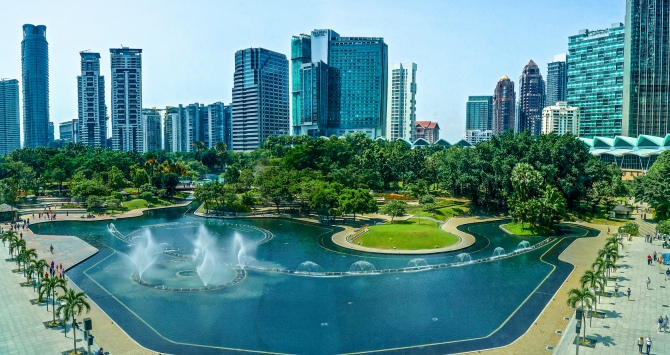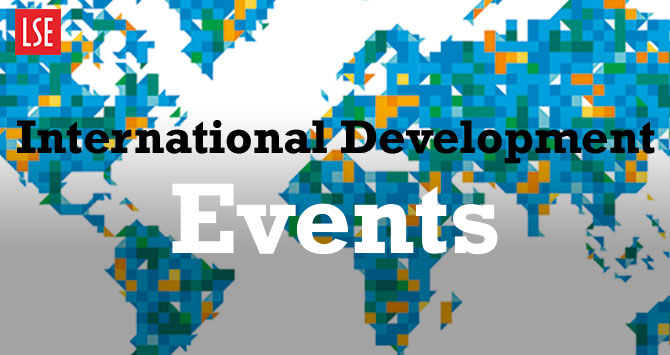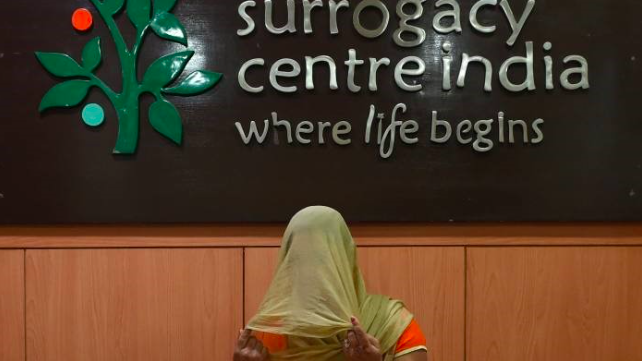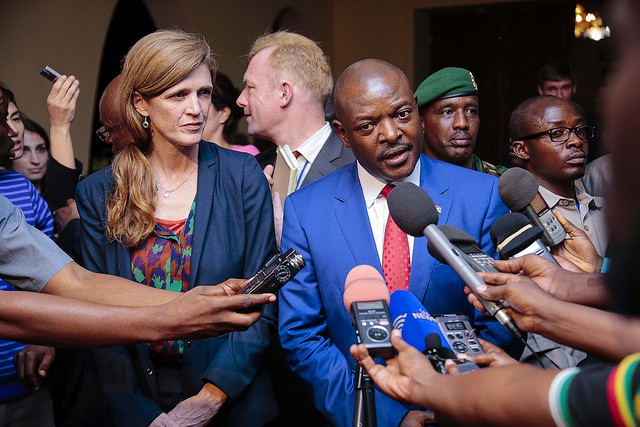The Brazilian president-elect can’t pursue his environmental policies on his own. After this weekend’s state elections, he’ll have the backing he needs. Professor Kathy Hochstetler explains:
Over the weekend, the ultra-conservative candidate Jair Bolsonaro handily beat his opponent, Fernando Haddad of the Workers’ Party (PT), in the second round of the Brazilian presidential elections.
For a campaign season characterized more by rhetoric than policy proposals, both candidates did set out clear agendas for the environment. Bolsonaro, for his part, condemned the country’s existing environmental regulations and agencies as bad for development and has promised to roll them back. (He has pledged to continue supporting renewable energy, though.) Haddad, by contrast, put forward a suite of policies meant to reduce pollution and control deforestation.
On their own, Bolsonaro’s proposals might not have amounted to much. After all, his party will still control fewer seats than the PT in the National Congress. But a shift toward the right in Congress and in some lesser-noticed state elections means that he’ll likely get his way: Whatever happens at the top of government, Bolsonaro’s agenda will be advanced at the state level. In turn, deforestation and greenhouse gas emissions could skyrocket, undoing what has been one of Brazil’s signature achievements on the world stage.
On the campaign trail, one of Bolsonaro’s most eye-catching environmental promises was to follow U.S. President Donald Trump’s lead and abandon the Paris Agreement on climate change. He has since recanted, but even if his country stays in the agreement, his policies will surely undermine it.
Historically, most of Brazil’s greenhouse gas emissions have come not from industrialization but from massive deforestation. Under PT President Luiz Inácio Lula da Silva, who led the country from 2003 to 2011, deforestation in the Amazon dropped by nearly 80 percent. That alone put Brazil on track to make one of the most substantial contributions of any country to meeting the Paris Agreement’s goals by its first deadline in 2020. Since 2014, though, after the narrow re-election of Lula’s successor, Dilma Rousseff, emissions have steadily crept back up, reflecting both loosened restrictions on the timber industry and increased emissions from other sectors.
Nearly all of Bolsonaro’s environmental proposals would further ramp up deforestation. He has called for folding the Ministry of the Environment into the Ministry of Agriculture, even though agribusiness has been a major driver of deforestation. He has vowed to defund (if not eliminate) the two agencies that enforce existing environmental regulations—the Institute for Biodiversity, which operates in protected areas, and the Institute of the Environment and Renewable Natural Resources, which conducts environmental impact assessments. He has said that he will refuse to designate “even a centimeter” more of land as indigenous, and he has promoted mining in the Amazon. The president-elect is also hostile to universities, scientists, and activists who have supported environmental action.
To pass any of his proposed measures, Bolsonaro needs to get them through the legislature. But his Social Liberal Party (PSL) has historically been tiny. It made unexpectedly large gains in the National Congress this weekend, jumping from one to 52 representatives in the lower Chamber of Deputies and gaining its first four senators. But the PSL is still smaller than the PT, which has 56 deputies (down from 69) and six senators (down from nine).
Still, the PSL’s strong showing furthers a trend that has gotten lost in the uproar over Bolsonaro’s rise: The National Congress has been moving to the right since at least the 2010 election. Right-wing parties have also increasingly punched above their weight thanks to the growing power of the “beef, bullets, and Bible” caucuses (Bancadas do Boi, da Bala e da Bíblia), which banded together during Rousseff’s and Michel Temer’s tenures as president to dominate the legislature.
The three caucuses didn’t necessarily agree on all policies. Still, they managed to swap votes enough to get their top legislative priorities approved and to block proposals they didn’t like. As a result of corruption scandals, about half of the members of the three caucuses up for re-election this weekend lost their seats. But many were replaced by politicians further to the right, which means that the coalition could become even more powerful and unified during the Bolsonaro presidency.
In terms of the new government’s environmental agenda, the agribusiness and security caucuses will be key. Members of the beef group, for example, have been behind most of the 15 legislative proposals since 2004 to change environmental licensing procedures, including some that would have eliminated licenses altogether for some projects. Meanwhile, the security caucus has long been obsessed with the porousness of Brazil’s forested borders. The former military government even encouraged new road projects and internal migration there to deepen its control of these otherwise hard-to-reach regions. The costs, in terms of deforestation, were huge.
In short, even though the PSL does not hold a majority or even plurality of the seats in Congress—and even though 30 parties, some of them deeply hostile to PSL, will be seated in the body—Bolsonaro is likely to be able to find strong majorities to support his environmental policies.
Beneath the national government, Brazil’s governors have broad powers, including in environmental affairs. Here, things have shifted even more favorably toward Bolsonaro. His PSL won three governorships, and at least 11 additional winning governors supported him in the first or second round of the presidential election. Nine backed Haddad, and four have remained neutral.
The regional distribution of these governors matters even more than their numbers. Of those who declared opposition to Bolsonaro, eight are in Brazil’s poor and drought-prone Northeast Region. Voters there especially benefitted from the PT’s social policies, and the region has supported the party and its leftist allies since Lula’s first administration. The northeastern states still have serious security and development needs, though, and they rely on federal budget distributions. Their relationship to the president will thus be uneasy; they may have to go along with his plans in order to get funding. At the same time, the Northeast Region is home to most of Brazil’s rapidly expanding wind and solar power infrastructure—something Bolsonaro has committed to expanding.
Bolsonaro’s showing was strongest in precisely those regions that will feel his environmental policies most deeply. Deforestation has been Brazil’s most serious environmental problem for decades, and it is concentrated in the Central-West and North regions, which are home to the Amazon and are now mostly aligned with Bolsonaro. Two of the three PSL governorships are in the Amazonian states of Roraima and Rondônia. These new leaders are likely to back (and perhaps even deepen) Bolsonaro’s efforts to slash environmental and indigenous protections while promoting agriculture and mining.
At the same time, three of the neutral governor-elects are also located in the Amazonian North Region—in Amapá, Pará, and Tocantins. The state of Pará has seen particularly high tensions (and at times violence) between local communities and extensive mining operations. It is not obvious how these governors will interact with Bolsonaro, but they likely won’t be able to derail him entirely.
Finally, there are the states of São Paulo and Rio de Janeiro, in Brazil’s costal Southeast Region. São Paulo has historically been an environmental leader. It has developed policies for pollution control, water management, and climate change that have gone on to become models for the rest of the country. After this weekend’s elections, João Doria of the Brazilian Social Democratic Party, who enthusiastically supported Bolsonaro even as many in his party remained neutral, will run the state. He and his party have not put forward anything other than a very limited environmental agenda, so it seems unlikely that São Paulo will continue in its starring environmental role.
Meanwhile, in the state of Rio de Janeiro, the winner in the race for the governorship, Wilson Witzel, has quickly aligned himself with the new president. (Bolsonaro stayed neutral on the Rio election throughout the campaign season.) Witzel faces some of the toughest security and economic challenges of any governor in the country, and he has said that he will ask the military to stay to help him govern. He is unlikely to break with Bolsonaro on environmental grounds.
The areas in which Bolsonaro has made concrete policy proposals are few and far between, but one of them is the environment. His preference for all kinds of security and economic goals over environmental protection is clear. Although the president-elect is likely to struggle to govern in Brazil’s complex federal democracy, the election results in the National Congress and state houses mean that he could have a comparatively easy time pushing his environmental agenda. That means that Brazil’s signature environmental achievement—reducing deforestation—may be further undermined. In turn, losses of biodiversity and greenhouse gas emissions will explode, whether Bolsonaro formally leaves the Paris Agreement or not. As Brazil has learned before, those will be long-term costs to achieve short-term economic gains—and that is if the gains come at all.
Kathy Hochstetler is Professor of International Development and teaches Global Environmental Governance. She is currently completing a research project on the role of the BASIC countries (Brazil, China, India, South Africa) in climate negotiations and is writing a book on the adoption of wind and solar power in Brazil and South Africa. In addition, she is researching south-south development finance, with particular focus on Brazil’s BNDES.
This article was originally written for the foreignpolicy.com.
The views expressed in this post are those of the author and in no way reflect those of the International Development LSE blog or the London School of Economics and Political Science.





